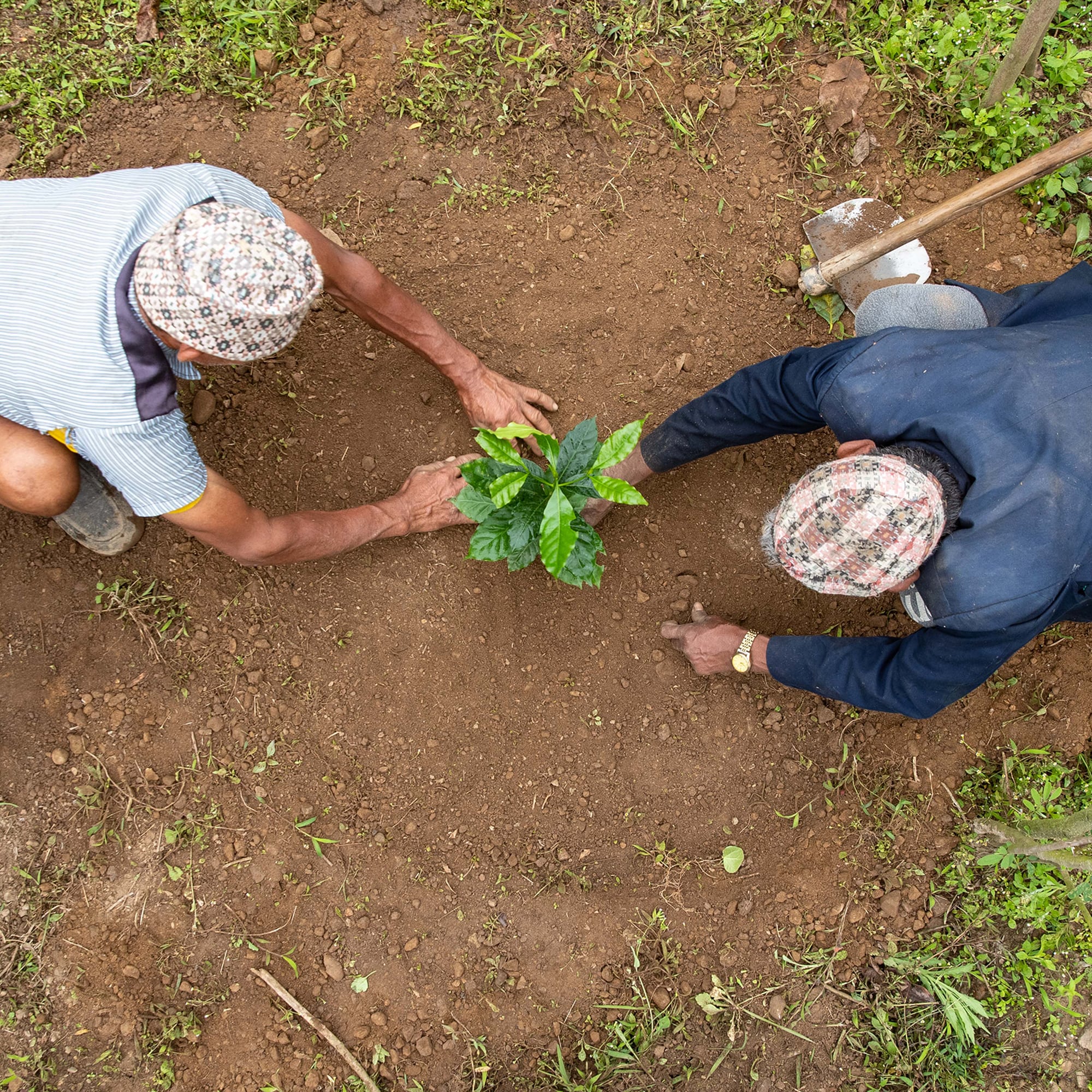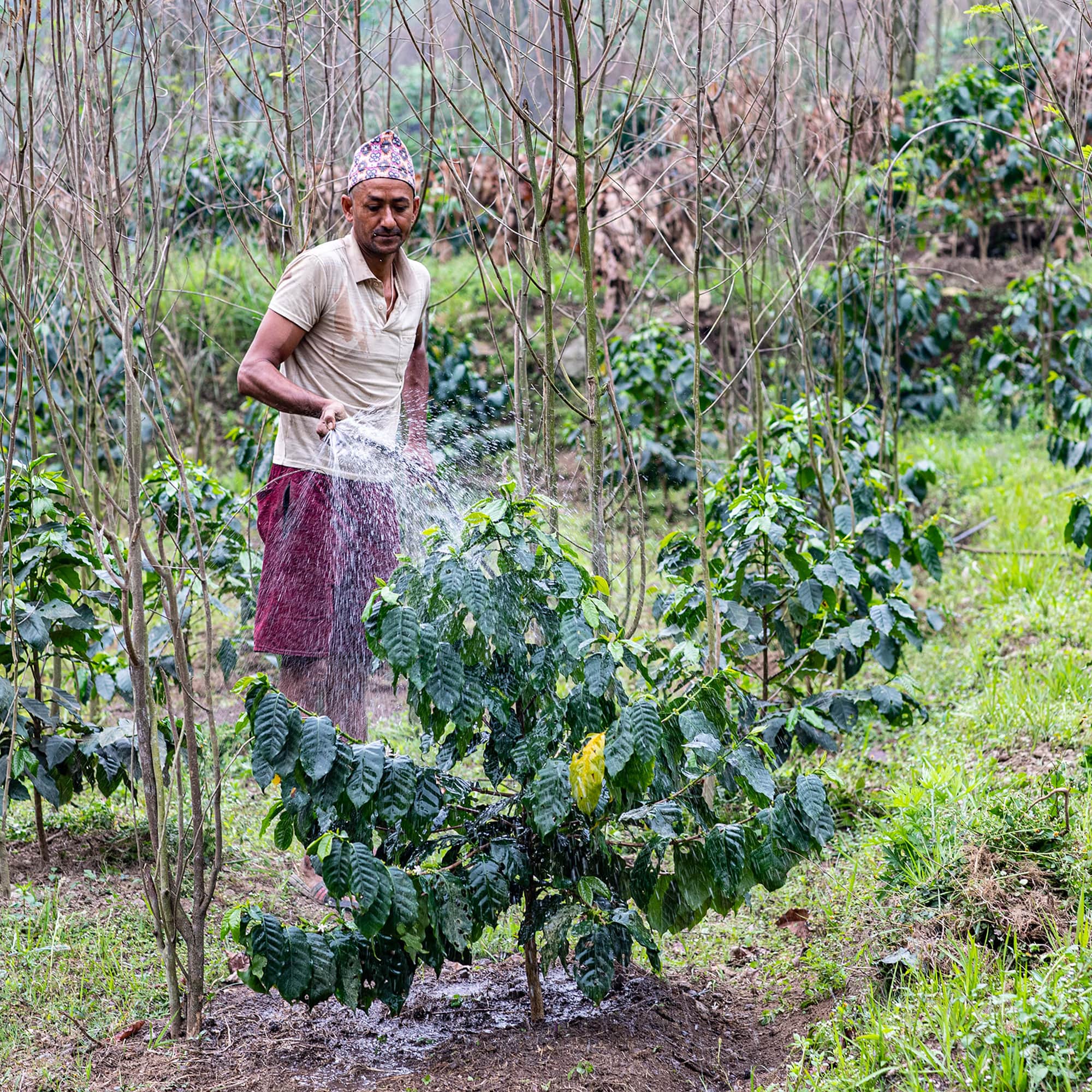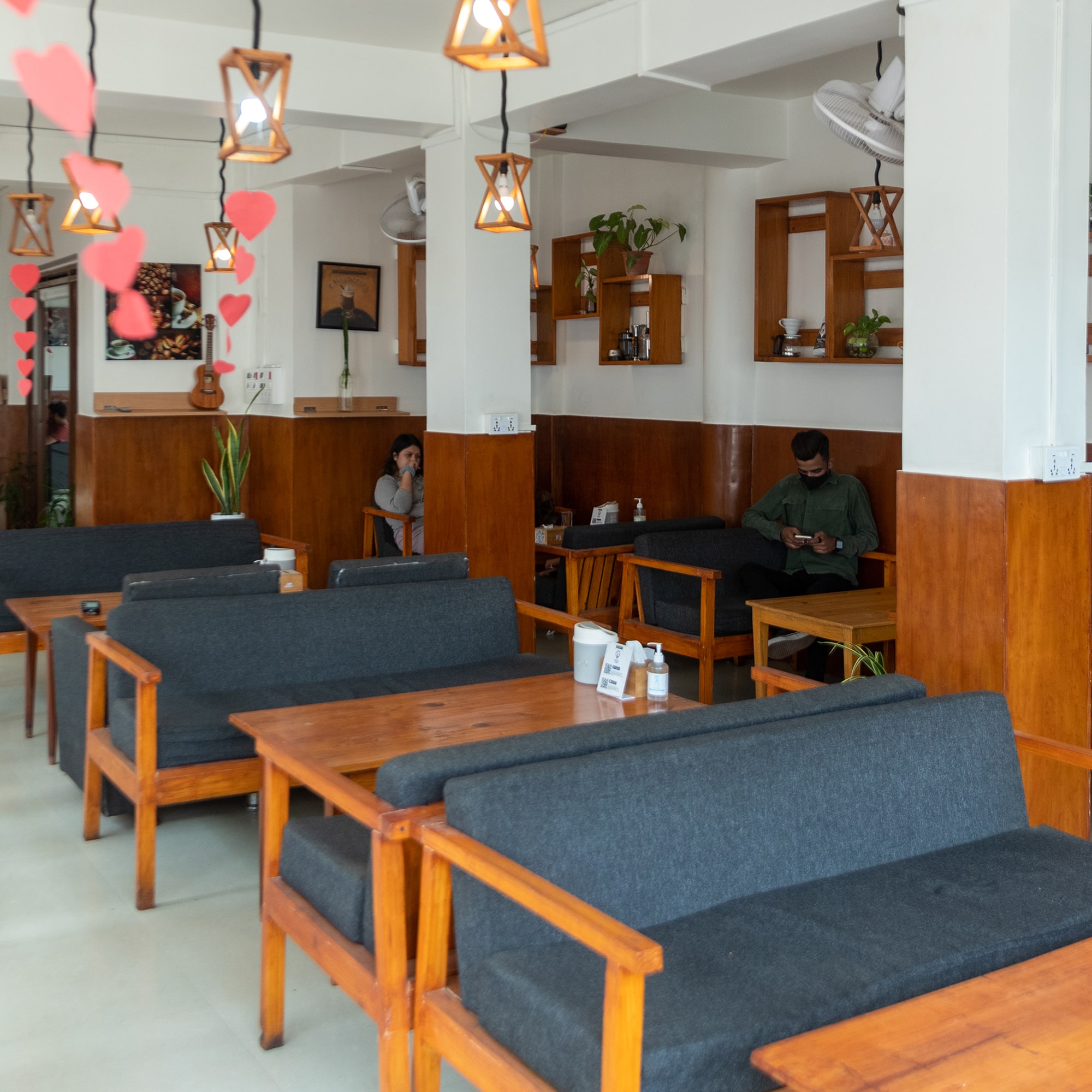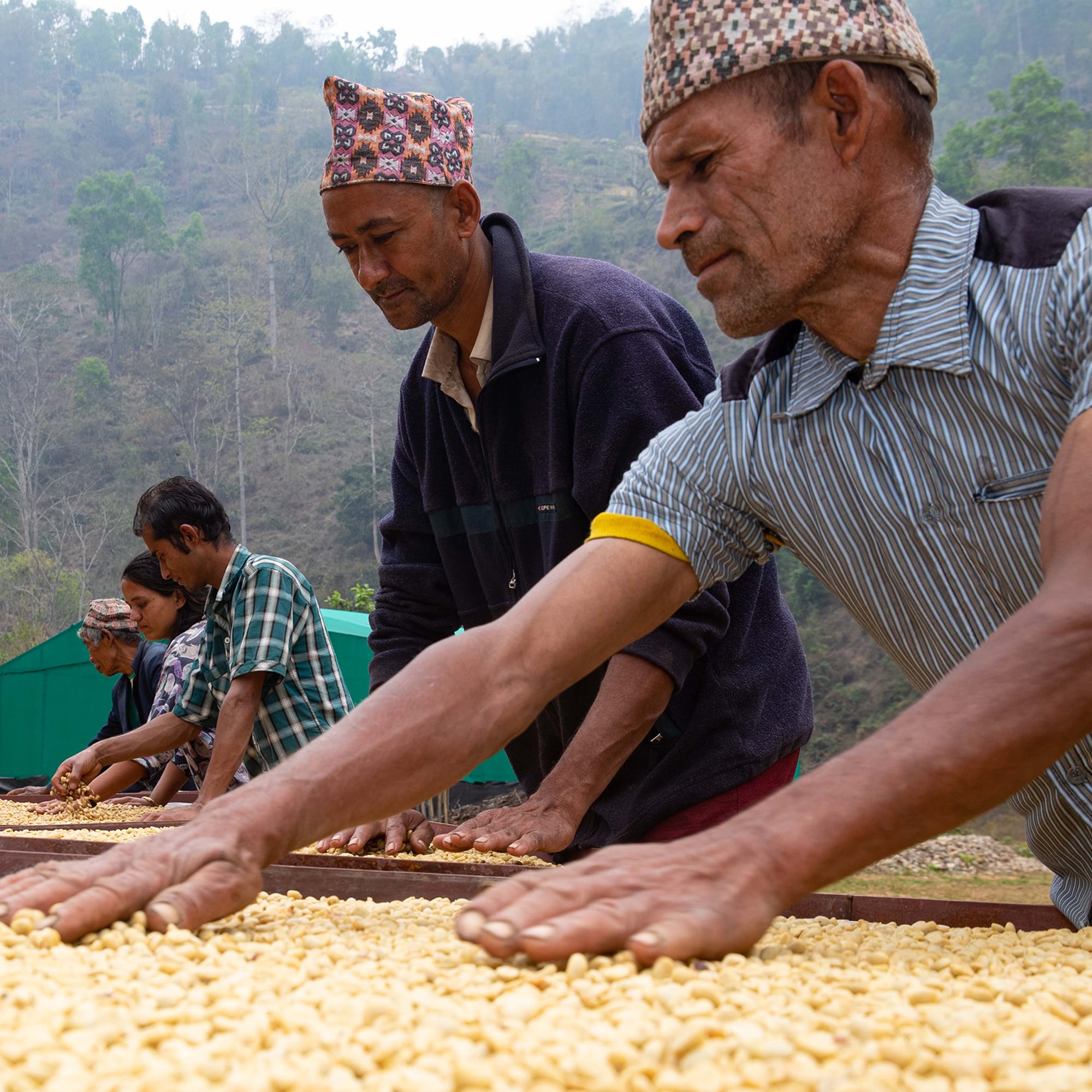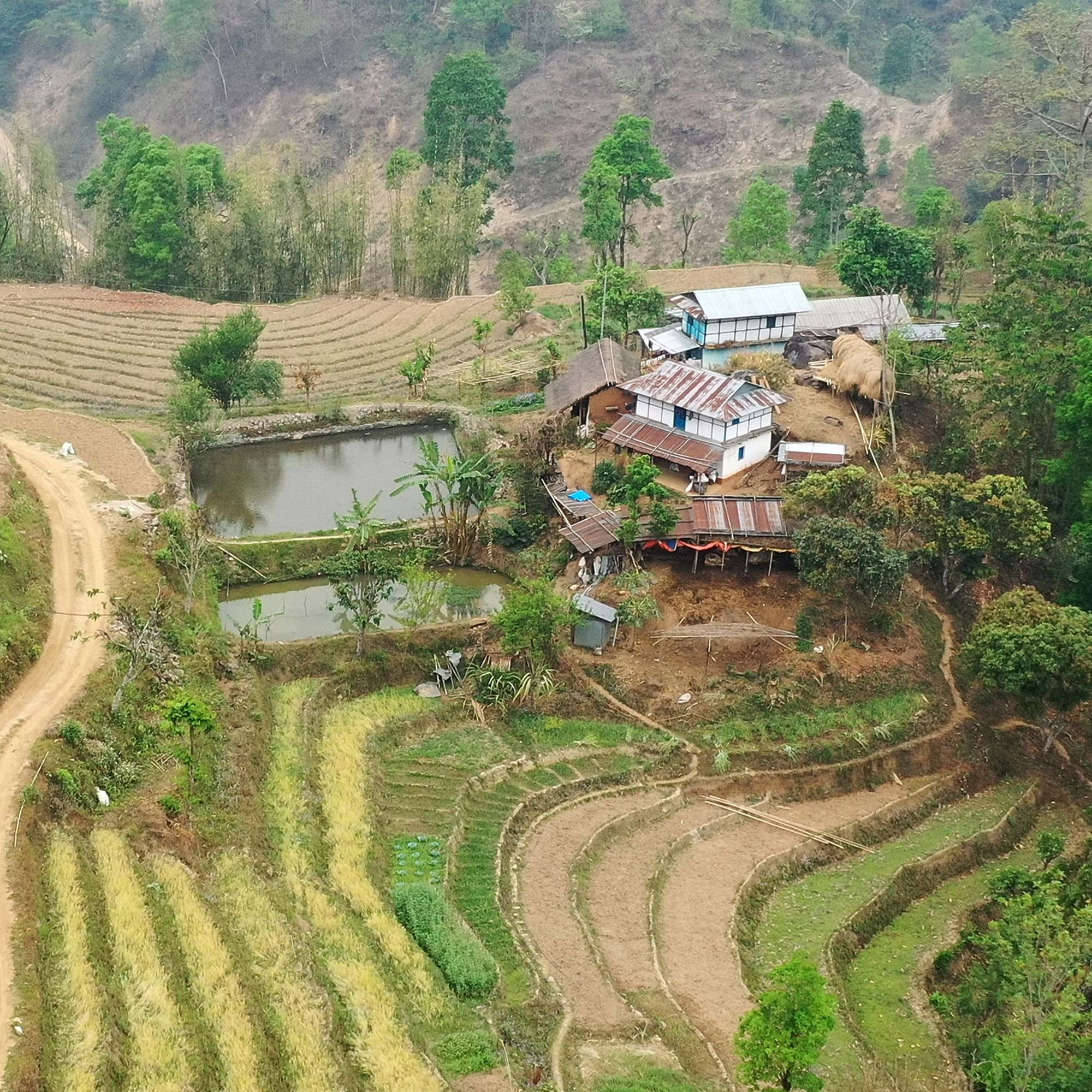Impact
Coffee Ma Mahila
We are proud to support the Coffee Ma Mahila project to empower rural women in coffee. We want to increase women’s participation and recognition with training, finance, and access to trade.
Coffee Ma Mahila meaning “women in coffee”, aims to motivate women to grow coffee so they are less financially dependent on male family members. Rural women are often already the breadwinners as male youths are forced to leave their villages due to poverty to become migrant workers overseas. Villages are only left with women and children. This project gives them a sustainable, profitable future.
Eventually, the project will be run solely by women farmers. Right now, it is in its initial stage; delayed due to COVID. Hopefully, we will start as soon as possible.
Coffee Ma Mahila also connects women to the International Women’s Coffee Alliance (IWCA) platform to share knowledge and experiences. It operates under the umbrella of the Academy of Coffee Excellence Nepal, which offers roasting, brewing, barista, sensory, and green coffee modules.

Child labour & poverty alleviation
Of the seven million children in Nepal aged 5–17, 1.1 million (15.3%) are engaged in child labour (down from 1.6 million in 2008). In Province 1, where Ilam district is located, 17.6% of childrenare engaged in work of some kind.
Poverty is the main problem of my country and I always wanted to work in poverty. During my masters, I realised that child labour is the consequence of poverty, and poverty is the outcome of child labour. It is a vicious circle.
The brick industry employs tens ofthousands of children in hazardous conditions. I wrotean article, Build Responsible! on avoiding brick from construction projects to support our economy. Instead, we should support the agricultural sector, on which 60% of Nepalis rely for their livelihoods.
Children are the future of a nation. Child labour is a tragedy for a society. It is a very complex social issue with deep rootsin poverty.There is no single solution to address this problem.
Child labour is not a conscious employment choice. Simultaneous actions are needed to reduce and stop it, such as policies to raise rural family incomes; building roads to connect urban and rural cities for trade, commerce, and tourism; increasing school attendance rates; and adult education.
